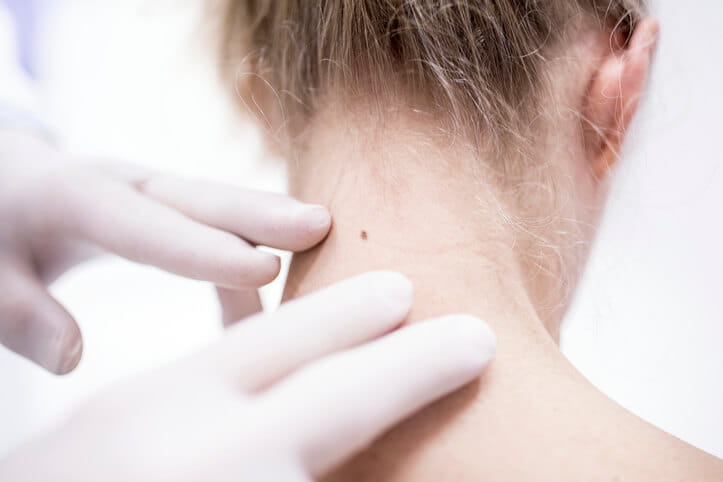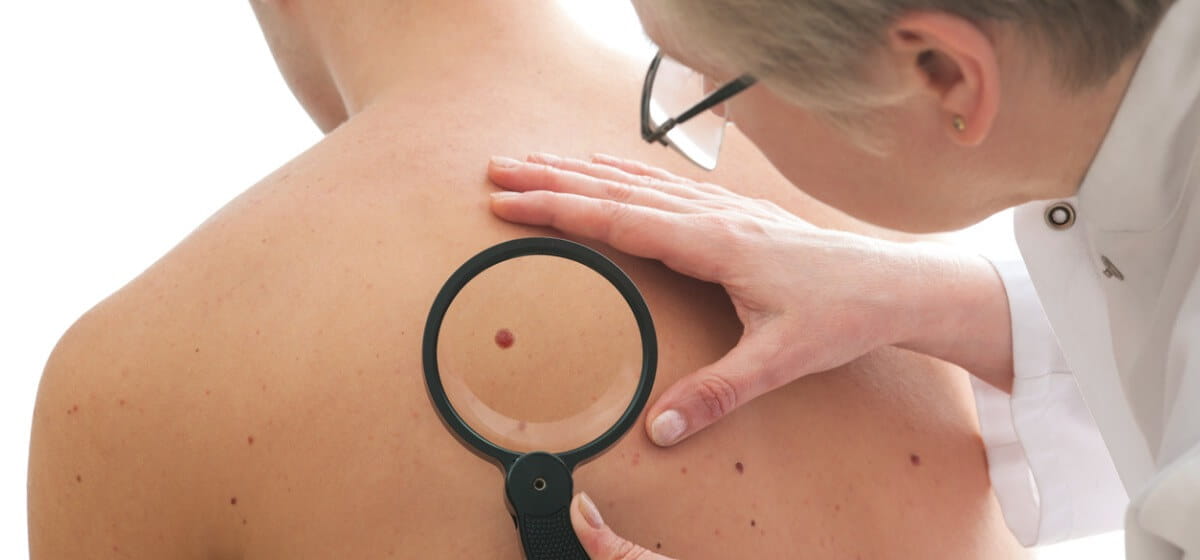The Truth about Skin Cancer

Bathing suits are in stock, and pool season is upon us. Time to check the expiration date on last year’s leftover sunscreen (if past the date – toss it), and make the annual pilgrimage to buy a swimsuit with instant weight-loss powers.
All that dressing room time can double as an opportunity to perform a skin survey, evaluating any suspicious areas on our skin, including your scalp. Use a hand-held mirror for tough-to-see areas.
Remember, early detection is important, especially with melanoma.
Take this short quiz to test your knowledge of common beliefs about skin cancer.
True or False:
Tanning booths are safer than the sun because they are a “controlled” amount of radiation.
This one is definitely false. The UVA radiation emitted from tanning bed bulbs is three times more intense than that emitted from the sun. Furthermore, research from the National Cancer Institute found that the use of an indoor tanning device was associated with a 50 percent increase of basal cell carcinoma and more than a 100 percent increase in the risk of squamous cell carcinoma. (Not to mention there is a Kentucky tax on indoor tanning – honest!)
Darker-skinned individuals do not need to worry about skin cancer.
This is also false. While those with lighter skin are the most susceptible to skin cancer, everyone faces some risk. Every year, melanoma (the most serious form of skin cancer) strikes 25 of every 100,000 Caucasians, four of every 100,000 Hispanics and one in every 100,000 African-Americans.
Skin cancer is easy to see – it always starts as a new dark-colored bump that is tender.
Nope – this one is also false. Skin cancers can show up in many different colors, shapes, and sizes. The head, neck, and arms – which get a lot of sun – are likely spots for basal cell and squamous cell cancers. But, they can occur anywhere on the body. Look for a new spot on the skin or a spot that’s changing in size, shape or color, or that looks different from other spots on your skin.
Baptist Health is known for being one of the most advanced adult cancer programs in the region for quality of care, outcomes and patient safety. We make that care convenient by providing eight Cancer Care Centers offering the very best treatments available, close to your home. Learn more about our advanced approach to cancer.



